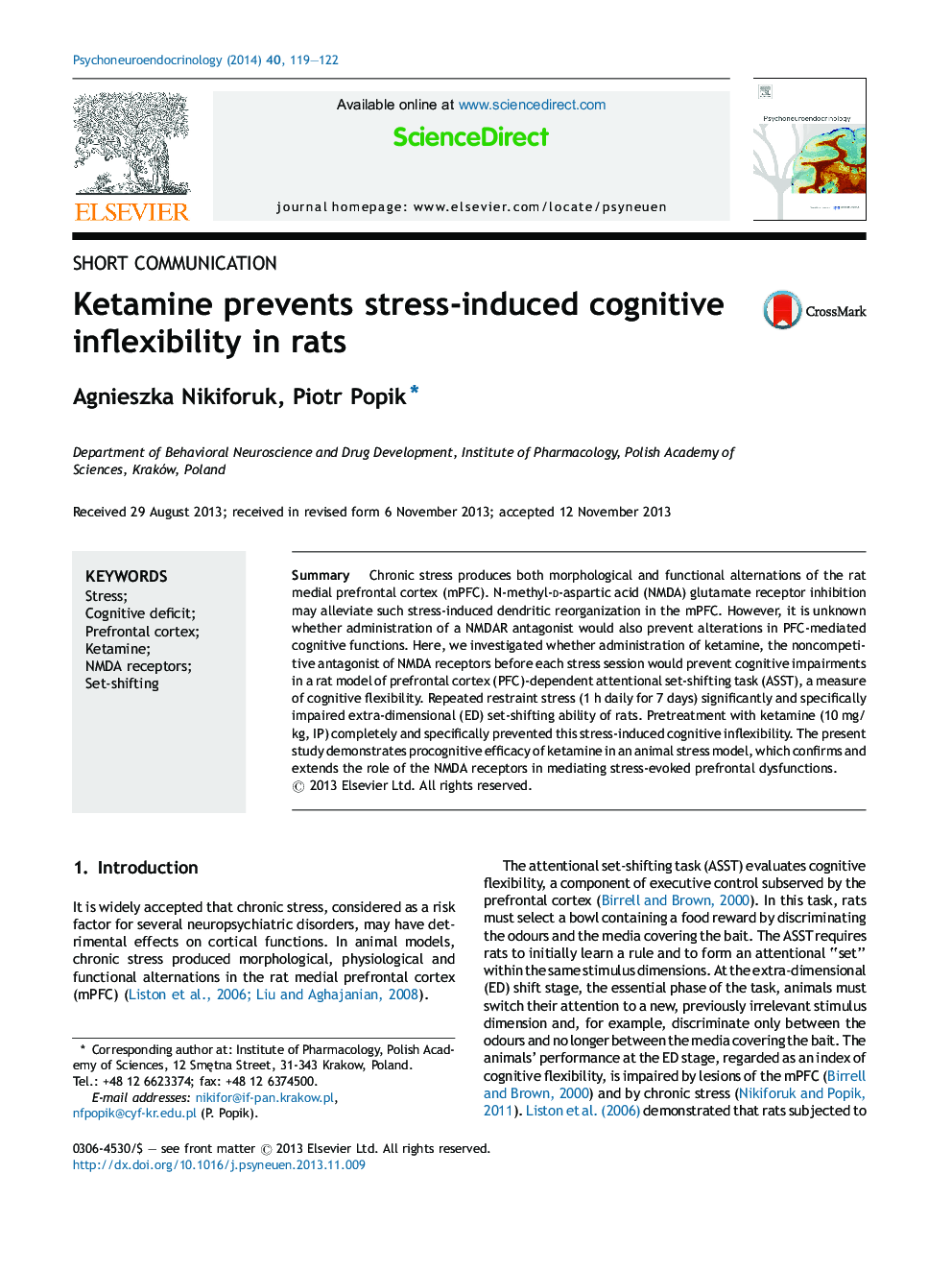| Article ID | Journal | Published Year | Pages | File Type |
|---|---|---|---|---|
| 335770 | Psychoneuroendocrinology | 2014 | 4 Pages |
SummaryChronic stress produces both morphological and functional alternations of the rat medial prefrontal cortex (mPFC). N-methyl-d-aspartic acid (NMDA) glutamate receptor inhibition may alleviate such stress-induced dendritic reorganization in the mPFC. However, it is unknown whether administration of a NMDAR antagonist would also prevent alterations in PFC-mediated cognitive functions. Here, we investigated whether administration of ketamine, the noncompetitive antagonist of NMDA receptors before each stress session would prevent cognitive impairments in a rat model of prefrontal cortex (PFC)-dependent attentional set-shifting task (ASST), a measure of cognitive flexibility. Repeated restraint stress (1 h daily for 7 days) significantly and specifically impaired extra-dimensional (ED) set-shifting ability of rats. Pretreatment with ketamine (10 mg/kg, IP) completely and specifically prevented this stress-induced cognitive inflexibility. The present study demonstrates procognitive efficacy of ketamine in an animal stress model, which confirms and extends the role of the NMDA receptors in mediating stress-evoked prefrontal dysfunctions.
